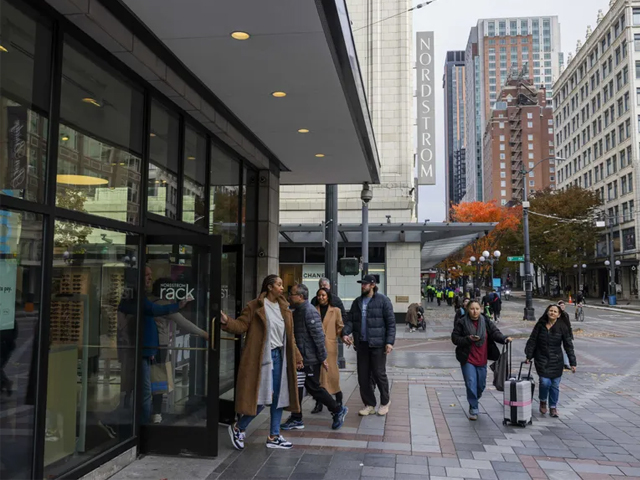News
The Seattle Times: Downtown Seattle isn’t done, and we shouldn’t be done with it
Posted on

This story was originally published in The Seattle Times on Feb. 16, 2024
Cities are ecosystems that are perpetually evolving, routinely experiencing downturns and upswings. Some are self-inflicted, but some are driven by forces beyond their control.
Just now, our beloved city is struggling, and not for the first time.
However, like Jennifer Moulton, a former Denver public official quoted by columnist Jon Talton, we feel “downtown is never ‘done.’” We’re both big believers in cities. They attract intellectual capital and provide the encounters that spawn new ideas and create opportunity.
Growing up in Seattle in the 1960s and ’70s, we saw examples of big moves for the better (Forward Thrust, which cleaned up Lake Washington, among other projects) and big moves that helped us dodge mistakes, like the vote to save Pike Place Market and the choice to abandon the RH Thomson Expressway.
But while we were away at school and working elsewhere, Seattle’s prospects seemed dim indeed. At a time when Boeing pretty much was Seattle, it faced one of its most challenging periods in the “Boeing Bust.” Downtown boosters promoted an urban renewal project that would have demolished most of the Market.
We came back to town in the 1980s. Gerry worked on projects like the restoration of the Market, the relocation of Seattle Art Museum to its downtown location and the proposed Seattle Commons Project. Matt was involved in the development of Third Avenue office buildings (1111, 999, and 1201).
Downtown suffered again in the ‘90s. Frederick & Nelson’s legacy department store was shuttered, as were many others in the retail core. Nordstrom, local investors, then-Mayor Norm Rice and a committed City Council joined to “ReStore Pine Street” after voters approved an initiative to head off opponents.
The next decade saw the financial crisis, related recession and the bankruptcy of Washington Mutual, with the loss of thousands of jobs. But Amazon’s move downtown inaugurated an in-town tech boom to echo Microsoft across the lake.
We were able to coast through much of the 2010s, fueled by strong residential growth and new mass transit, among other drivers. But as our friend Blake Nordstrom would remind us, “downtowns are fragile.” And, to misquote a well-known Monty Python line, “no one ever expects a pandemic.”
But downtown isn’t done, and it’s not “done for,” either.
Activating downtown comes in three flavors: daily office workers, downtown residents and visitors. Of the three, two are showing renewed strength. Downtown living lagged some during the pandemic but is growing. Downtown now has more than 100,000 residents. Tourism has largely recovered to pre-pandemic levels.
We continue to struggle with the third leg of the stool — downtown office workers. The trend has been positive, with worker foot-traffic levels recorded in the fall that surpassed 50% of the level during the same period pre-pandemic. Regardless, no one expects that in-office work five days a week will return. If we could move that needle to a stable three days per week, that would make a big difference.
But what can a concerned Seattle citizen do to help their city’s critical core?
As we have learned, civic engagement can be both impactful and satisfying. Think about investing time and energy in a cause or a nonprofit organization that motivates you. Consider that third day in the office. Think about and act on ways in which you can simply use downtown, especially as mass transit expands, and take advantage of Climate Pledge Arena, downtown arts and culture, and the city’s sports teams.
The city still struggles with social and economic equity, fentanyl, mental health access, homelessness, and perceived and real public safety concerns. We hope our mayor and new City Council can stay focused on what’s important, if only because the city’s budget challenges will diminish as downtown recovers.
We believe the best years for our downtown are ahead of us, but our work is never done.
Matt Griffin managed the Pine Street Group for 20-plus years until the end of 2022 and most recently headed the development team for the new Convention Center. He has chaired the boards of several local nonprofits.
Gerry Johnson is an attorney who co-founded Pacifica Law Group and managed the firm until last year. He has provided volunteer leadership to the city’s emerging central waterfront project since its inception.